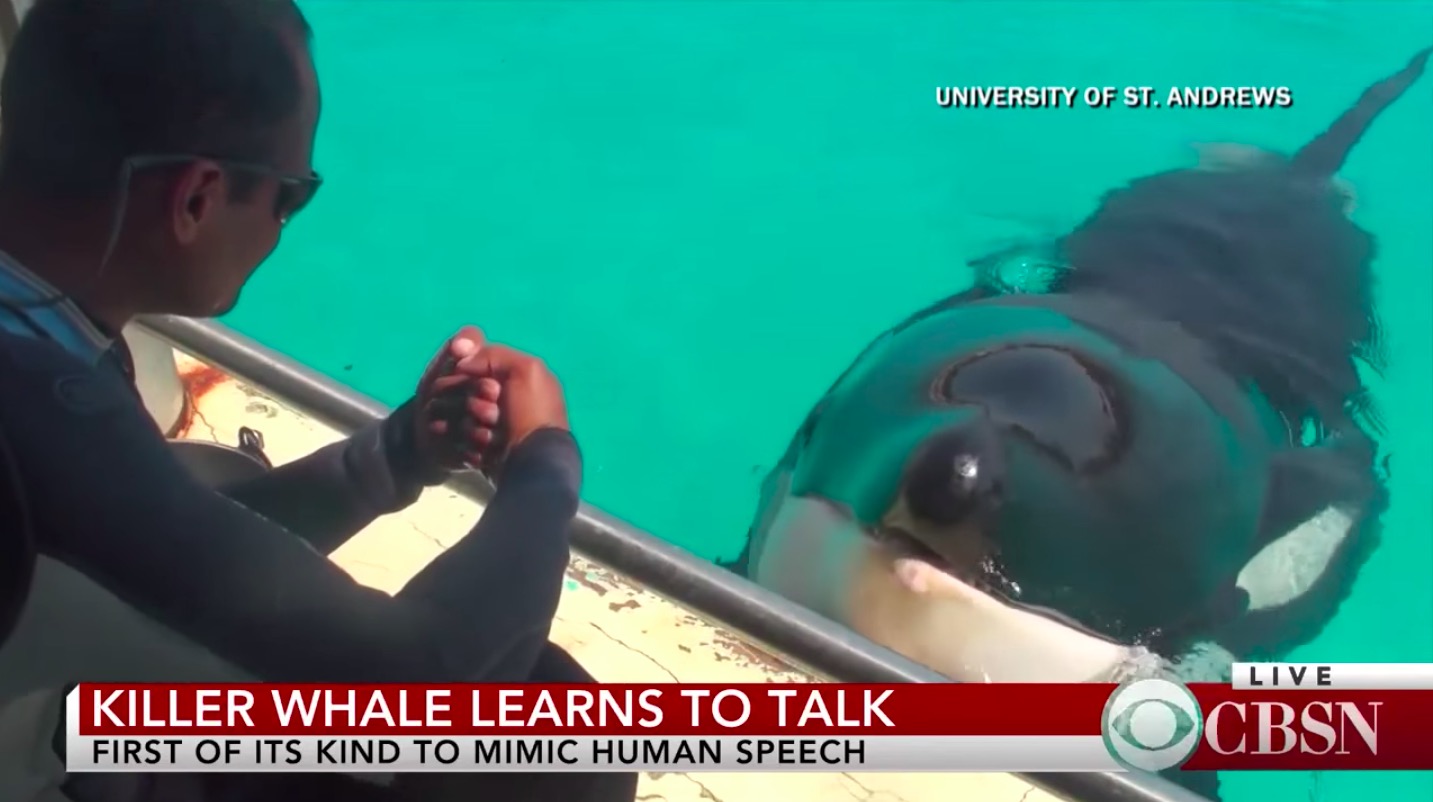A paper published on Wednesday announced a world first: a team of international researchers was able to teach Wikie, a female orca who lives at the Marineland Aquarium in southern France, to imitate human speech. (We would like to say that while this is amazing, it’s more proof just how intelligent these animals are, whales belong in the wild.)
RELATED STORY:
The team revealed in their paper that Wikie was able to repeat a handful of words including “hello,” “bye bye,” “one, two” and “Amy” and did so “…relatively quickly (most during the first 10 trials and three in the first attempt).”
The paper explained that vocal imitation is a “hallmark of human spoken language” but that for other animals it happens less often. While most mammals use the larynx to produce sounds (including humans who go a step further and create speech thanks to our motor abilities) whales and dolphins produce sounds in their nasal passages. This makes Wikie’s audible performance even more remarkable. (Dolphins and beluga whales have been known to copy sounds of other animals species and parrots are able to mimic sounds and “speech” as well.)
“To determine whether an orca whale really could learn new vocalizations, Josep Call, professor in evolutionary origins of mind at the University of St Andrews and a co-author of the study, explained how the team chose human sounds, which are not already in the whale’s repertoire.
‘Human sounds are easily recognizable by us and if they could produce a human sound that is not in their normal repertoire, that would mean that the only way they could learn it is by listening to it and reproducing it. And that’s what we did.'”
Call does not believe that Wikie was actually saying “hello” to someone, but rather, that she was imitating sound. However, he is interested in addtional study that would allow researchers to investigate whether or not it might be possible for whales to comprehend the sounds they are making. You see, in the wild, killer whales live in pods and are known to have different dialects from one another. There has been some debate about how this was possible but Call now believes their study “…shows that our vocal learnings, even of sounds that are not in the killer whale repertoire, is plausible.”
RELATED STORY:












